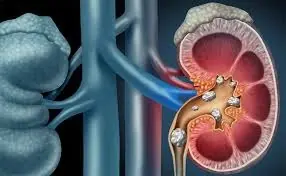
Beat the Bloat: 8 Common Causes of Abdominal Bloating and Evidence-Based Solutions
Beat the Bloat: 8 Common Causes of Abdominal Bloating and Evidence-Based Solutions
Abdominal bloating is a remarkably common, albeit unpleasant, experience that affects people of all ages. While occasional bloating is a normal part of life, persistent or severe bloating can significantly impact comfort and quality of life. Understanding its root causes is the first step toward finding lasting relief.

What Exactly is Bloating?
At its core, abdominal bloating is the sensation of a full, tight, or swollen abdomen, often accompanied by visible distension. It's primarily caused by an excess accumulation of gas in the digestive tract. This gas buildup happens for two main reasons:
-
Digestive Gas Production: As food breaks down in your gut, particularly through the process of fermentation by gut bacteria, gas is naturally produced.
-
Swallowing Air (Aerophagia): Certain habits lead to unconsciously swallowing air, which then gets trapped in the digestive system.
When these two factors combine, the result can be significant discomfort, ranging from mild fullness to severe pain. Common symptoms include:
-
Feeling excessively full after meals
-
Frequent flatulence or burping
-
Audible abdominal noises (rumbling, gurgling)
-
A hard or distended stomach
-
Visible swelling of the abdomen
For many, bloating is a temporary inconvenience that resolves on its own after a few hours. However, if you're experiencing regular or chronic episodes, it's a sign that underlying factors may be at play, and simple lifestyle adjustments could offer substantial relief.
8 Common Reasons You Might Be Bloated All The Time
Let's dive into the most frequent culprits behind persistent bloating, backed by scientific evidence:
-
You Eat Too Much Or Too Quickly: One of the most prevalent causes of bloating is simply overeating, as confirmed by medical studies. When you consume large quantities of food, the sheer volume, coupled with the gas produced during digestion, can overwhelm your system, leading to a trapped, uncomfortable sensation. Eating too quickly exacerbates this by preventing your brain from receiving signals that you're full (which takes about 20 minutes) and by causing you to gulp down excess air.
-
Solution: Practice mindful eating. Serve smaller portions, but take your time to savor each mouthful. Chew your food thoroughly to aid the initial stages of digestion through saliva. This also helps reduce swallowed air.
-
-
You Are Swallowing Air (Aerophagia): Beyond rushed eating, several everyday habits can lead to an accumulation of air in your abdomen:
-
Using straws for drinking
-
Consuming carbonated beverages (sodas, sparkling water)
-
Chewing gum or sucking on hard candies
-
Solution: Try eliminating these habits for a period and observe if your bloating improves.
-
-
You Are Stressed: Stress and anxiety trigger physiological responses in the body that can directly impact digestion. When stressed, blood flow is diverted away from the digestive system to other parts of the body, making digestion less efficient and potentially leading to bloating. Additionally, some people react to stress by changing their breathing patterns, resulting in increased air swallowing.
-
Solution: Incorporate stress-reduction techniques into your daily routine. Simple breathing exercises, meditation, yoga, or relaxation techniques can help regulate your nervous system and support better digestion.
-
-
You Are Eating Gassy Foods: Certain foods are notorious for producing more gas during digestion, leading to bloating and flatulence.
-
High-Fat Meals: Fat is the slowest macronutrient to digest, meaning rich, fatty meals stay in your stomach longer, contributing to fullness and potential bloating.
-
Cruciferous Vegetables: Broccoli, cauliflower, cabbage, and Brussels sprouts contain complex carbohydrates that can produce significant gas during digestion, especially for individuals sensitive to them.
-
Beans and Legumes: These are well-known for their gas-producing properties due to their high fiber and complex sugar content.
-
Whole Grains: While incredibly healthy and high in fiber, whole grains can also cause gas in some individuals.
-
Solution: These foods are highly beneficial, so don't cut them out entirely unless absolutely necessary. Instead, try eating them in moderation, gradually increasing your intake to allow your digestive system to adapt. Cooking methods like steaming or boiling can also make them easier to digest than raw.
-
-
You Don’t Drink Enough Water: Insufficient fluid intake can lead to dehydration, which impairs overall bodily functions, including the efficiency of your digestive system. Dehydration can slow down gut motility, contributing to constipation and, subsequently, bloating.
-
Solution: Aim to drink adequate water throughout the day. When consuming high-fiber foods, it's particularly important to increase your water intake to help maintain digestive motility and prevent constipation, which often accompanies bloating.
-
-
You Use Artificial Sweeteners: Many people turn to artificial sweeteners or high-fructose corn syrup (HFCS) to reduce sugar intake. However, for a significant portion of the population, fructose (a component of HFCS and naturally present in some fruits) is not easily absorbed in the small intestine. This leads to it traveling to the colon, where bacteria ferment it, producing hydrogen and methane gases. This fermentation can cause significant pain, bloating, flatulence, and diarrhea. Medical studies confirm that fructose intolerance is a common cause of unexplained bloating and discomfort.
-
Solution: Consider replacing artificial sweeteners and HFCS with natural sugar substitutes like a small amount of maple syrup, honey, or stevia. Be mindful of processed foods, as many contain hidden HFCS.
-
-
Dairy Consumption May Cause Bloating: A large percentage of the global population has some degree of lactose intolerance, often undiagnosed. This means their bodies lack sufficient lactase, the enzyme needed to break down lactose (the sugar in milk and dairy products). When undigested lactose reaches the colon, it ferments, leading to symptoms like abdominal pain, diarrhea, bloating, and flatulence.
-
Solution: If you notice bloating after consuming dairy, try eliminating it for a period to see if symptoms improve. Many excellent plant-based milk substitutes (almond, oat, soy) are available.
-
-
Your Medications Cause Bloating: Various over-the-counter and prescription medications, as well as supplements, can list gas and bloating as side effects. Common culprits include:
-
Aspirin
-
Certain antacids
-
Some anti-diarrhea medicines (e.g., Imodium)
-
Narcotic pain relievers
-
Fiber supplements and bulking agents (e.g., Metamucil), especially if not consumed with enough water
-
Multivitamins and iron pills
-
Solution: If bloating worsens after starting a new medication or supplement, discuss it with your prescribing doctor. They may be able to suggest an alternative or offer strategies to manage the side effect. If you're taking non-prescribed supplements, consider discontinuing them to see if symptoms resolve.
-
Natural Remedies for Quick Bloating Relief
While addressing the underlying causes is key for long-term relief, sometimes you need immediate comfort. Here are some natural remedies for occasional bloating:
-
Herbal Teas: Many herbal teas are renowned for their digestive benefits. Peppermint, ginger, chamomile, and fennel teas can help relax digestive muscles, reduce stress, improve blood flow to the digestive system, and aid in gas expulsion.
-
Targeted Foods: Incorporate foods known for their anti-bloating properties. Ginger (fresh or in tea) is a powerful digestive aid. Papaya and pineapple contain natural enzymes (papain and bromelain, respectively) that assist in protein digestion.
-
Abdominal Massage: This ancient technique, recognized by institutions like the University of Michigan, can effectively help move trapped gas and stool through the colon, relieving tightness, pressure, cramping, and bloating. Gentle, circular motions in a clockwise direction can be beneficial.

When to Seek Medical Attention for Bloating
While bloating is frequently benign and manageable with lifestyle changes, there are instances when it warrants a visit to your doctor. You should make an appointment with a medical professional if:
-
Your bloating is persistent, severe, or doesn't improve with the suggested lifestyle changes.
-
It is accompanied by other concerning symptoms such as blood in the stools, unexplained vomiting, persistent diarrhea, significant unexplained weight loss, or progressively worsening heartburn.
-
You experience severe and prolonged abdominal pain that goes beyond typical bloating discomfort.
Before your appointment, maintaining a food diary can be incredibly helpful. Note everything you eat, the time of meals, and the timing and severity of any bloating episodes. This detailed record can provide invaluable clues, helping you and your doctor pinpoint potential causes and guide further investigations.
Are there any specific symptoms or situations you're experiencing that you'd like to discuss further?
News in the same category

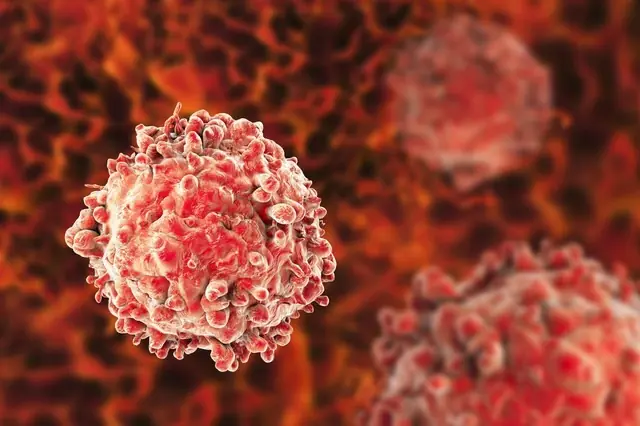
People with Cancer Often Share 8 Morning Signs—Especially Clear After Age 40
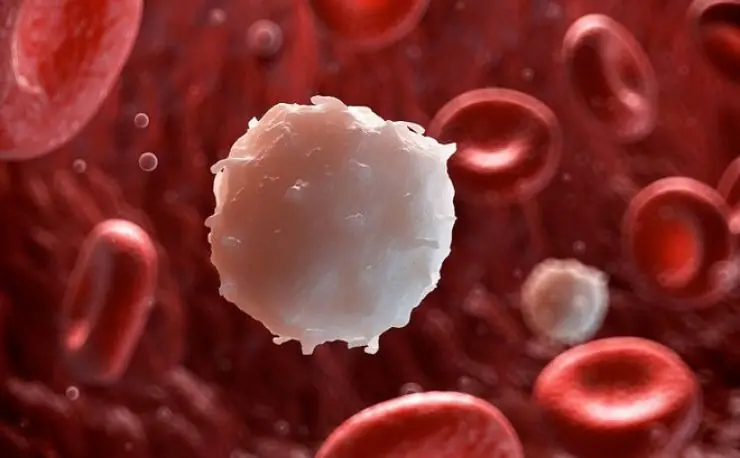
5 Foods That Tumors Hate: Eat These Often for Better Health

Scientists Warn of a Silent Epidemic: Men’s Testosterone Levels Are Plummeting — And Here’s Why

Scientists Found The Hidden Factor Behind the Global Infertility Crisis, And It’s Terrifying

🍵 The Quiet Power of Cinnamon Tea: A Simple Sip for Natural Balance

How to Make the Perfect Pineapple, Turmeric, Carrot, and Lemon Juice: Your Ultimate Homemade Immune Boost Drink

16 Warning Signs Your Blood Circulation is Poor and How to Improve It (Evidence-Based)

Simple Cloves and Ginger Recipe for Wellness

Nature’s Candy Unleashed: The Jaw-Dropping Health Hacks of Dates You NEED to Know!
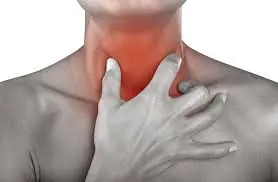
Banish Throat Mucus: Effective Home Treatments for a Clearer Throat (Evidence-Based)

Doctor Frank Suárez's Natural Recipe: Eliminate Diabetes, Poor Circulation, Fatty Liver, Pancreas Problems, High Blood Pressure, Knee Pain, and Even Cancer

Juniper (Juniperus communis): Benefits and Uses

4 Common Habits You Must Change Immediately When Using Air Conditioning to Protect Your Respiratory Health

If Your Body Shows These 5 Signs, It Could Be a Warning of Kidney Disease or Impending Kidney Failure
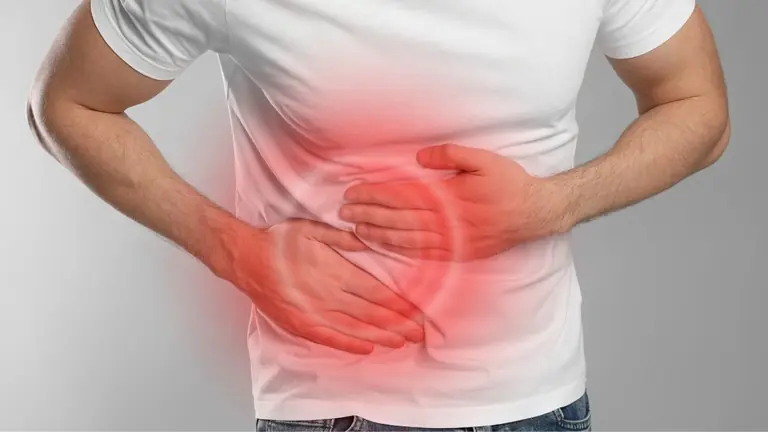
"2 Pains and 1 Yellow” – Warning Signs That Silent Liver Cancer Is Progressing: Being Negligent May Cost Your Life

Warning: Your Sushi Might Carry a Japanese Tapeworm – What You Need to Know About Salmon Safety

TikToker Unknowingly Records Near-Death Encounter After Picking Up One of Earth's Deadliest Creatures

Travel Influencer Unknowingly Films Terrifying Encounter with World's Deadliest Jellyfish
News Post

Here’s Why Cabin Crew Sits On Their Hands During Take Off and Landing

Surprising Reasons Why You Should Spread Salt

The First Communication Between Two Humans in Dreams Has Been Achieved – This Is How It Works

Am I Wrong for Cutting Off My Daughter’s Friends and Pulling Her from Soccer Camp?
A father decides to pull his daughter from soccer camp and cut her ties with two friends he deems "ghetto," but when family pressures him to reconsider, he starts questioning his actions. Is he wrong?

AI Is Set to Replace 41% of Jobs in the Next Five Years

MY HUSBAND CANCELED OUR DREAM VACATION FOR HIS MOTHER - MY REACTION WENT VIRAL!
“No, I’m going to Thailand, not to your mom’s garden beds,” I refused to go to the dacha, and my husband got offended.

The Miracle Child: The Baby Who Changed Everything at Saint Thorn Medical Center
A mysterious baby born with an unusual heartbeat starts to change the lives of everyone around him. From medical staff to nurses, his presence brings hope, awe, and a chilling sense of wonder.

The Dress That Could Make or Break My Career – And Why I Said No to My Niece’s “Special” Gift
A career-driven woman refuses her niece's offer to sew her a dress for a big event, leading to family tension. Is she being too harsh, or is her decision about professionalism and self-respect?

RELATIVES OVERSTAY THEIR WELCOME – BUT WHAT THEY DISCOVER IN GRANDMA'S HOUSE WILL CHANGE EVERYTHING!
— You’ve been coming to stay in my house for the third month now, maybe that’s enough? — I couldn’t hold back, looking at the relatives’ suitcases.

The boss’s daughter got a job as a cleaning lady to uncover the director’s scams

When Family Dynamics Clash: The Birthday Cake Dispute
A woman stands her ground over her daughter's birthday cake, facing pressure from her sister-in-law and family. Will she keep her decision, or choose peace over principle?

MY FIANCÉE M0CKED MY DE@D MOTHER AT OUR REHEARSAL DINNER - WHAT I DID NEXT CANCELED THE WEDDING
I'm 33, and until recently, I was engaged to Lydia, a woman I honestly thought I'd spend the rest of my life with. I met her about six years ago through mutual friends at a cookout. She had this great smile, was quick with a joke, and we just clicked.

Study Reveals: Your Body Remembers Trauma, Even After the Mind Has Let Go

Revenge Ink: How I Taught My Fiancé and His Mother a Lesson They'd Never Forget
When my fiancé’s mother told him to leave me for a richer woman, I devised the perfect plan for a dramatic and unforgettable revenge. Here’s how I got back at them with a lesson they’ll never forget.

Man Sentenced After Stowing Away On 120 Flights By Masquerading As Flight Attendant

5 Drinks That Can Help Dissolve Kidney Stones and Aid Easy Elimination

People with Cancer Often Share 8 Morning Signs—Especially Clear After Age 40

5 Foods That Tumors Hate: Eat These Often for Better Health

People Stunned After Learning The True Meaning Behind ‘SOS’ — It’s Not What You Think
